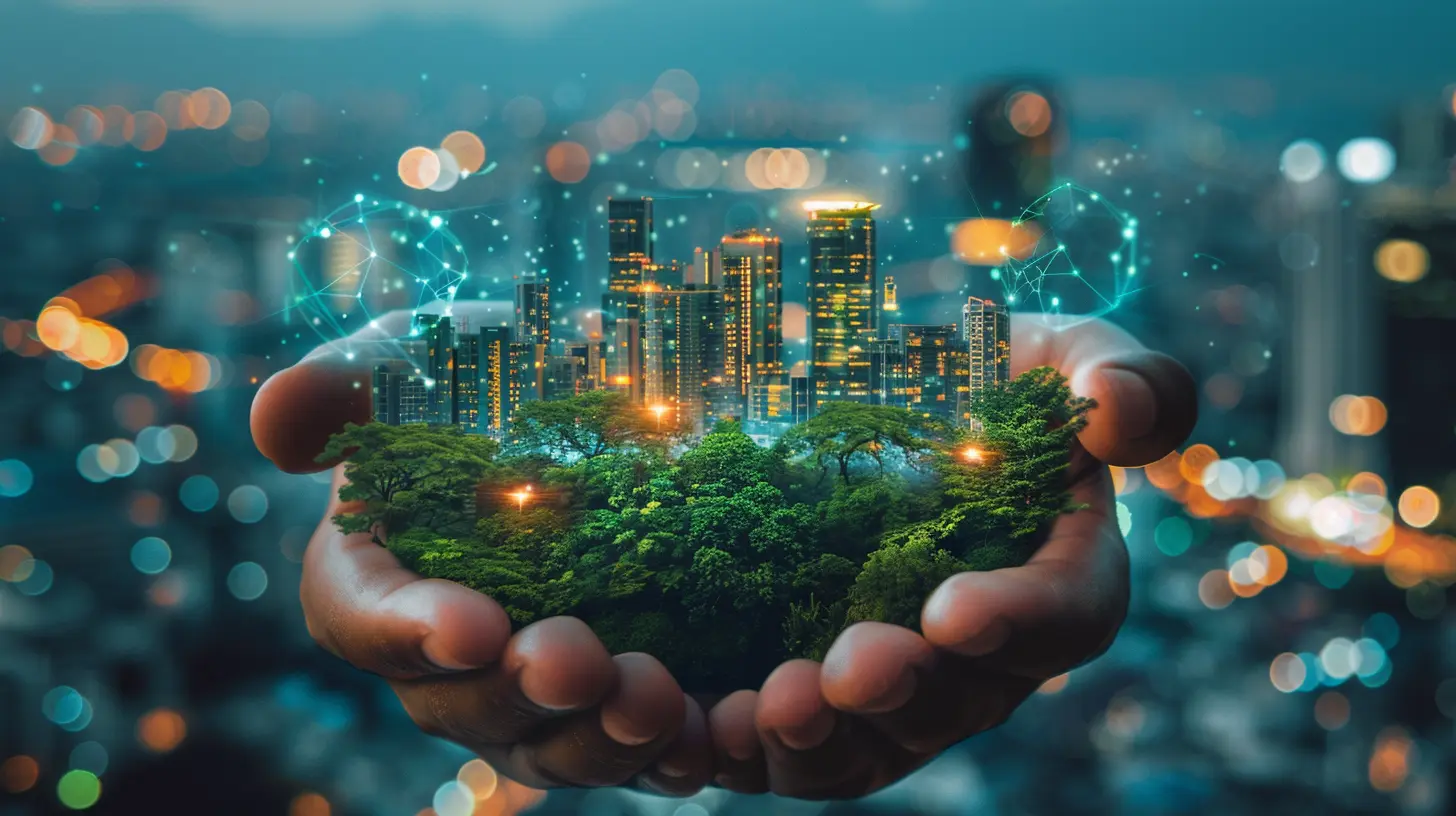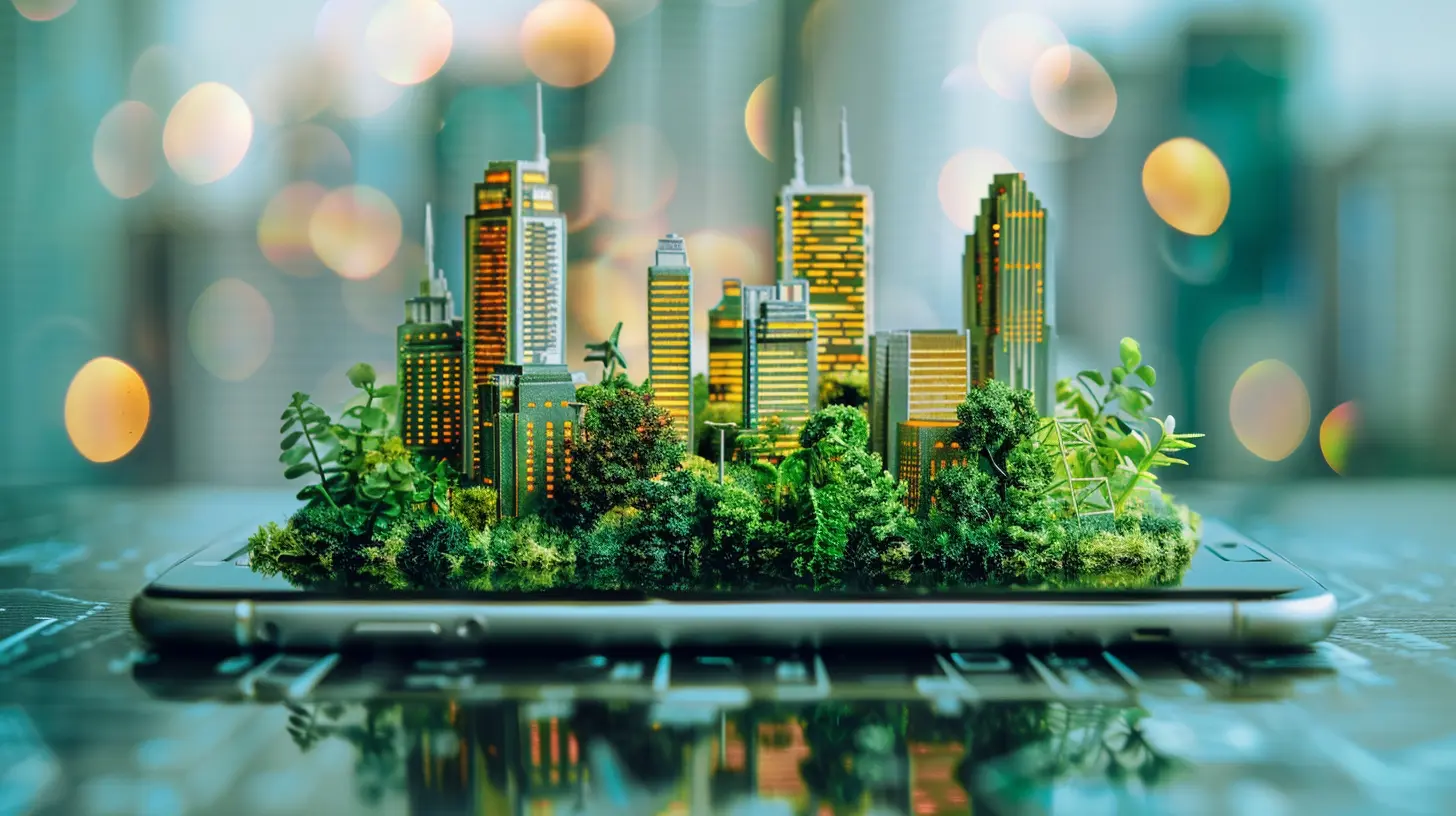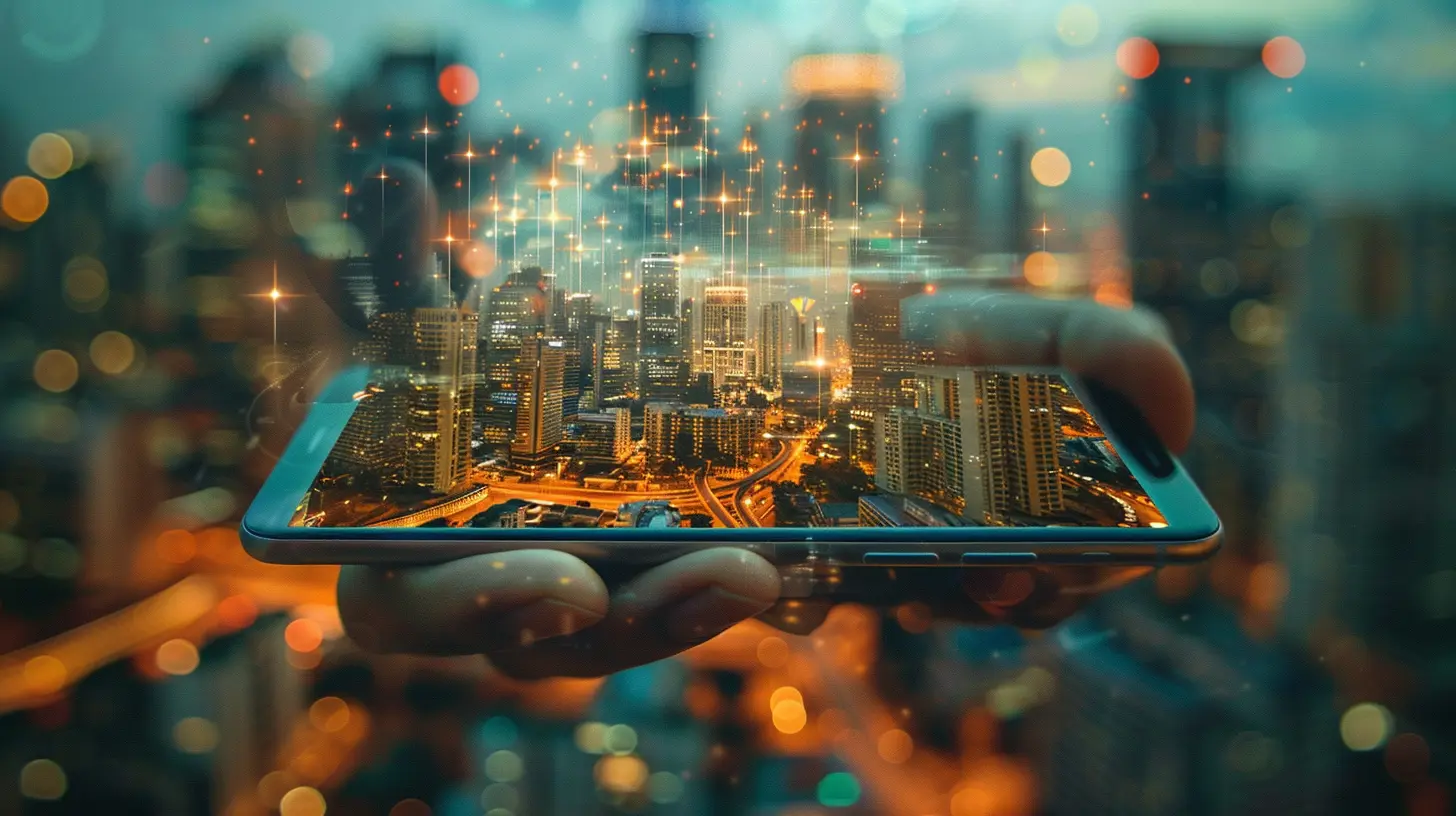The Role of Mobile Technology in Sustainable Development
14 October 2025
Let’s be honest—when we think about sustainability, mobile phones and apps aren't the first things that come to mind. We usually picture things like recycling, solar panels, or eco-friendly cars. But here’s the twist: mobile technology is quietly but powerfully reshaping the way we tackle sustainability challenges. And it's doing so in ways that truly matter.
If you’ve ever used your phone to book a carpool, transfer money, or learn something new, guess what? You’ve been part of this transformation. Mobile tech is turning into one of the biggest unsung heroes in the global push for sustainable development. And today, we're diving deep into how that's happening.
What Is Sustainable Development Anyway?
Before we get into mobile tech’s role, let’s clear up what sustainable development really means. In simple terms, it’s about meeting our current needs without messing up the ability of future generations to meet theirs. Think long-term solutions that balance economic growth, environmental care, and social well-being.The United Nations has even mapped it all out with the 17 Sustainable Development Goals (SDGs). These targets range from ending poverty to creating sustainable cities and fighting climate change. So, where does mobile tech fit in? Oh, you'd be surprised.
Mobile Technology: More Than Just Phones
When we say "mobile tech," we’re not just talking about smartphones (though they do play a huge part). We’re also including wireless networks, apps, wearables, and all the software that makes it possible for people to connect, share, and act in real-time—even from the most remote corners of the planet.This portability and reach are exactly why mobile tech is such a game-changer for sustainable development. It breaks down barriers. It puts information and tools directly into people’s hands—literally.
Bridging the Digital Divide
Let’s kick things off with access. One of the biggest challenges to development is inequality—especially in access to education, healthcare, and financial services. Mobile technology is turning that upside down.📱 Empowering Remote Communities
In places where there are no schools or banks for miles, a mobile phone becomes a lifeline. With a basic internet connection, students can learn remotely, farmers can check fair market prices, and families can access telemedicine services.Let’s take mHealth (Mobile Health) as an example. In remote parts of Africa and Asia, healthcare workers use smartphones to diagnose illnesses, collect patient data, and even consult specialists. That’s saving lives—not someday, but right now.
💸 Financial Inclusion Through Mobile Banking
Have you heard of M-Pesa? This mobile money platform in Kenya has revolutionized how people handle money. No bank account? No problem. With just a mobile phone, millions now store, send, and receive money securely.That’s not just convenient—it’s transformational. It means small businesses can grow, families can save, and sudden costs (like medical bills) don’t ruin lives.
Supporting Smart Agriculture
Sustainable development isn’t just about cities and tech hubs—it’s also deeply rooted in how we grow our food. Agriculture affects everything from hunger and poverty to climate change.🌾 Mobile Apps for Farmers
Farmers now use mobile apps to get weather alerts, crop information, and pest control tips. This helps them avoid crop failures, optimize resources, and reduce waste. Mobile tech makes agriculture smarter and more sustainable.Apps like FarmLogs or AgriApp provide data analytics, soil health info, and planting advice. It’s like having a digital farm assistant in your pocket. Not bad, right?
Environmental Monitoring and Protection
It’s no secret that we’re in a climate crisis. But what’s less talked about is how we’re actually fighting it using mobile tools.🌍 Real-Time Environmental Data
Governments and local communities use mobile sensors and drones to monitor deforestation, water quality, and even air pollution. The data gets sent directly to mobile devices, helping teams act fast—sometimes fast enough to prevent disasters.♻️ Promoting Eco-Friendly Habits
We’ve got apps that track carbon footprints, help users recycle properly, and even reward them for using public transport or biking. That’s mobile tech nudging us toward greener behaviors—one tap at a time.Boosting Education and Empowerment
Education is one of the strongest foundations for sustainable progress. But sadly, millions still lack access. That’s where mobile learning (aka mLearning) steps in.📚 Access To Learning Anytime, Anywhere
Mobile learning platforms like Khan Academy, Duolingo, and Coursera are opening up classrooms that fit into someone’s pocket. Whether you’re a teen in a village or a busy mom in the city, mobile tech makes it easier than ever to keep learning.That’s especially powerful for girls and women in areas where traditional education isn’t accessible or encouraged. A smartphone can open doors that were previously locked shut.
Crisis Management and Disaster Response
Natural disasters are unpredictable—but mobile tech helps us prepare, respond, and recover more efficiently than ever.🚨 Early Warning Systems
Mobile alerts save lives. Governments can send out mass texts about floods, earthquakes, and wildfires, giving people valuable time to seek safety.After disasters strike, mobile tools help track survivors, distribute aid, and connect families. Instead of waiting for help, communities can organize themselves and communicate in real-time.
Women’s Empowerment Through Connectivity
When women thrive, communities thrive. Mobile technology is playing a silent but powerful role in promoting gender equality.👩💻 Digital Tools for Women Entrepreneurs
From selling handmade goods on WhatsApp to managing microloans through mobile wallets, women around the world are using mobile tech to run businesses and gain financial independence.Apps focused on maternal health, safety, and legal rights are also making it easier for women to take charge of their health and well-being. That's sustainability from the ground up.
Urban Planning and Smart Cities
As the world rapidly urbanizes, sustainable cities are gaining importance. Mobile technology is at the heart of these smart city efforts.🚗 Smarter Transportation
Ever used ride-sharing apps or public transit trackers? These tools reduce traffic congestion and emissions. In cities like Singapore and Barcelona, mobile data is being used to plan routes, optimize energy use, and manage waste.The result? Cleaner, safer, and more efficient urban spaces.
Challenges and Considerations
Of course, it’s not all sunshine and signal bars. Mobile tech has its downsides too, and we need to be honest about them.🧠 Digital Literacy Gaps
Not everyone knows how to use mobile tools effectively. Elderly populations, the poor, or less educated folks might struggle with adoption, so we need to focus on digital education.🔋 E-Waste and Energy Use
More devices mean more electronic waste. And let’s not forget all the energy that data servers suck up. That’s why eco-friendly phone manufacturing, recycling programs, and green data centers must be part of the equation.The Future: Where Mobile Tech and Sustainability Intersect
So where are we headed?We're entering a world where smart tech, AI, and mobile apps will make sustainable choices instinctive and automatic. Imagine mobile apps that show you the most eco-friendly product on the shelf, or your phone nudging you when your energy use spikes.
Or what if mobile sensors in every home automatically calculated your daily sustainability score? It's like a fitness tracker for the planet!
In other words, the future of sustainable development has mobile technology woven into its very fabric. From smart farming and clean energy to education access and crisis aid—mobile tech is the invisible wire connecting it all.
Wrapping It Up: Small Device, Big Impact
Here’s the takeaway: mobile technology isn’t just about selfies, streaming, or scrolling. In the hands of the right people, it becomes a force for good—a silent partner in solving some of the world's toughest problems.It empowers the poor, supports the environment, boosts education, and helps us build smarter, greener cities. All with something that fits in your back pocket.
You don’t have to be a policy maker or a tech wizard to contribute. Every time you use your phone to make a smarter, fairer, or greener choice—you’re part of the solution.
Now that’s what I call power in the palm of your hand.
all images in this post were generated using AI tools
Category:
Mobile TechnologyAuthor:

Kira Sanders
Discussion
rate this article
1 comments
Galina Bass
Who knew our smartphones could be eco-warriors? 🌱 From tracking carbon footprints to connecting communities for green initiatives, mobile tech is like the superhero of sustainable development! Let’s just hope they don’t develop a ‘battery drain’ supervillain. ⚡️🔋 Keep swiping for a greener future!
October 16, 2025 at 3:39 AM

Kira Sanders
Absolutely! Mobile technology is transforming sustainability efforts and empowering individuals to make a positive impact. Let’s keep pushing for eco-friendly innovations! 🌍📱


